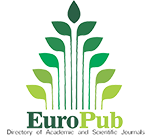Growth and slenderness index in sweet algarrobo, Neltuma flexuosa, according to the vermicompost percentage in the substrate and seed origin
DOI:
https://doi.org/10.48162/rev.39.105Keywords:
Prosopis flexuosa, nursery, Mendoza, Catamarca, reforestationAbstract
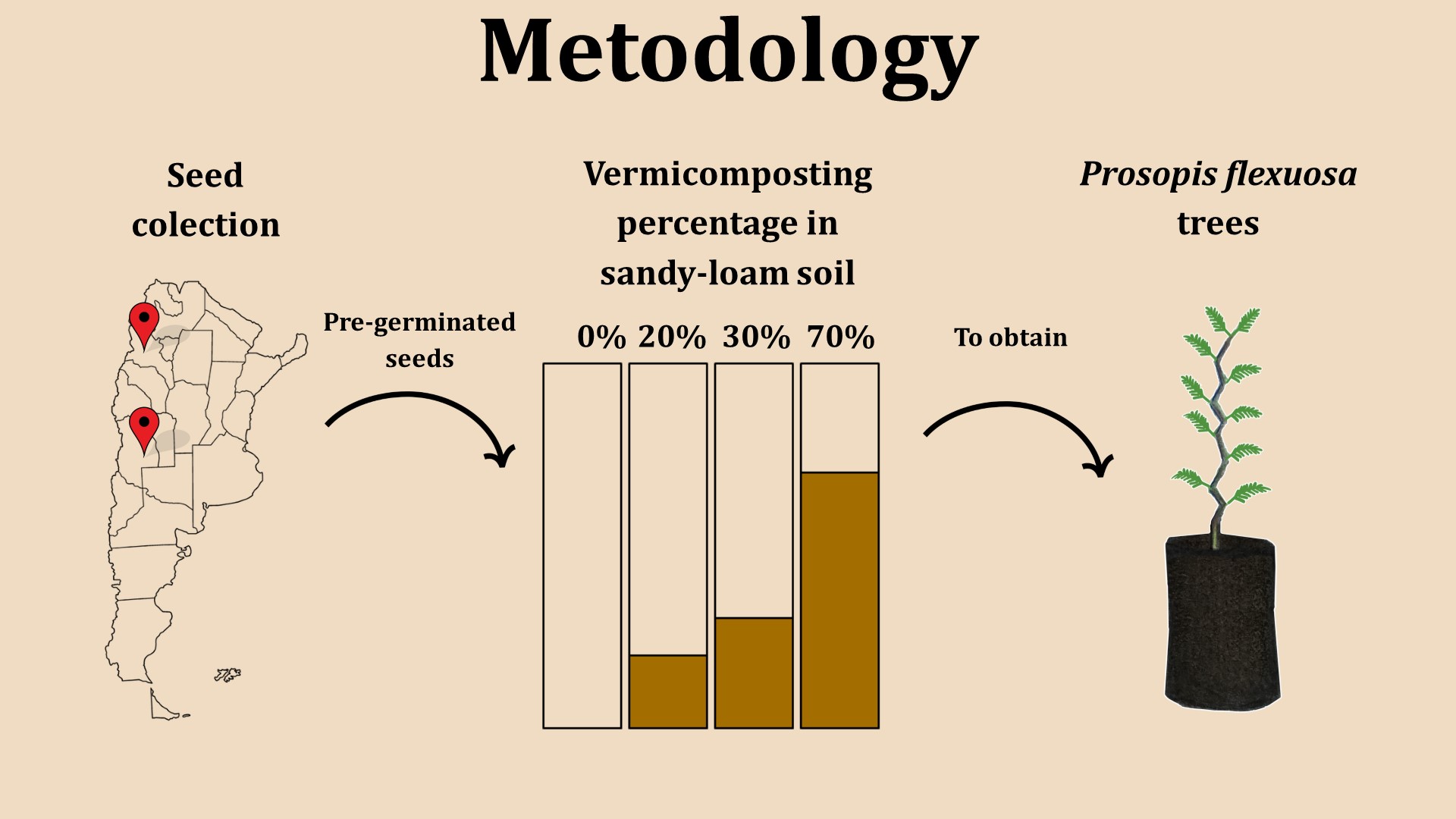
Substrate composition and seed origin influence the morphological characteristics of future trees. This study aimed to quantify growth of sweet algarrobo plants, Neltuma flexuosa, obtained from seeds collected from two sites in Argentina and grown on substrates with varying vermicompost percentages. A completely randomized factorial design was used with four levels of vermicompost percentage (0; 20; 30; 70) and two levels of seed origin (Monte Comán, Mendoza and; Bolsón de Fiambalá, Catamarca) (n= 360). Height growth rate (from root neck to apex) (Delta height), root neck diameter growth rate (Delta diameter), and Slenderness index were measured for each plant. Results showed that northern sweet algarrobo specimens growing on vermicompost-enriched substrates had a significantly higher Delta height (p<0.05). Additionally, northern specimens growing on 30-70% vermicompost-enriched substrates and southern specimens growing on 30% vermicompost-enriched substrates had a significantly higher Delta diameter compared to those growing on vermicompost-free substrates. Moreover, northern specimens growing on vermicompost-enriched substrates had a significantly higher slenderness index than southern specimens. Based on these findings, we recommend using seeds from the northern region and substrates with a minimum addition of 20% vermicompost for sweet algarrobo cultivation.
Highlights:
- Twenty percent vermicomposting in Sandy load soil significantly increased height in flexuosa plants.
- Northen individuals presented a significant increase in height when the vermicomposting percentage in sandy load soil was equal to and higher than 20%.
- The vermicomposting percentage did not significantly affect flexuosa plants diameter at the root neck.
Downloads
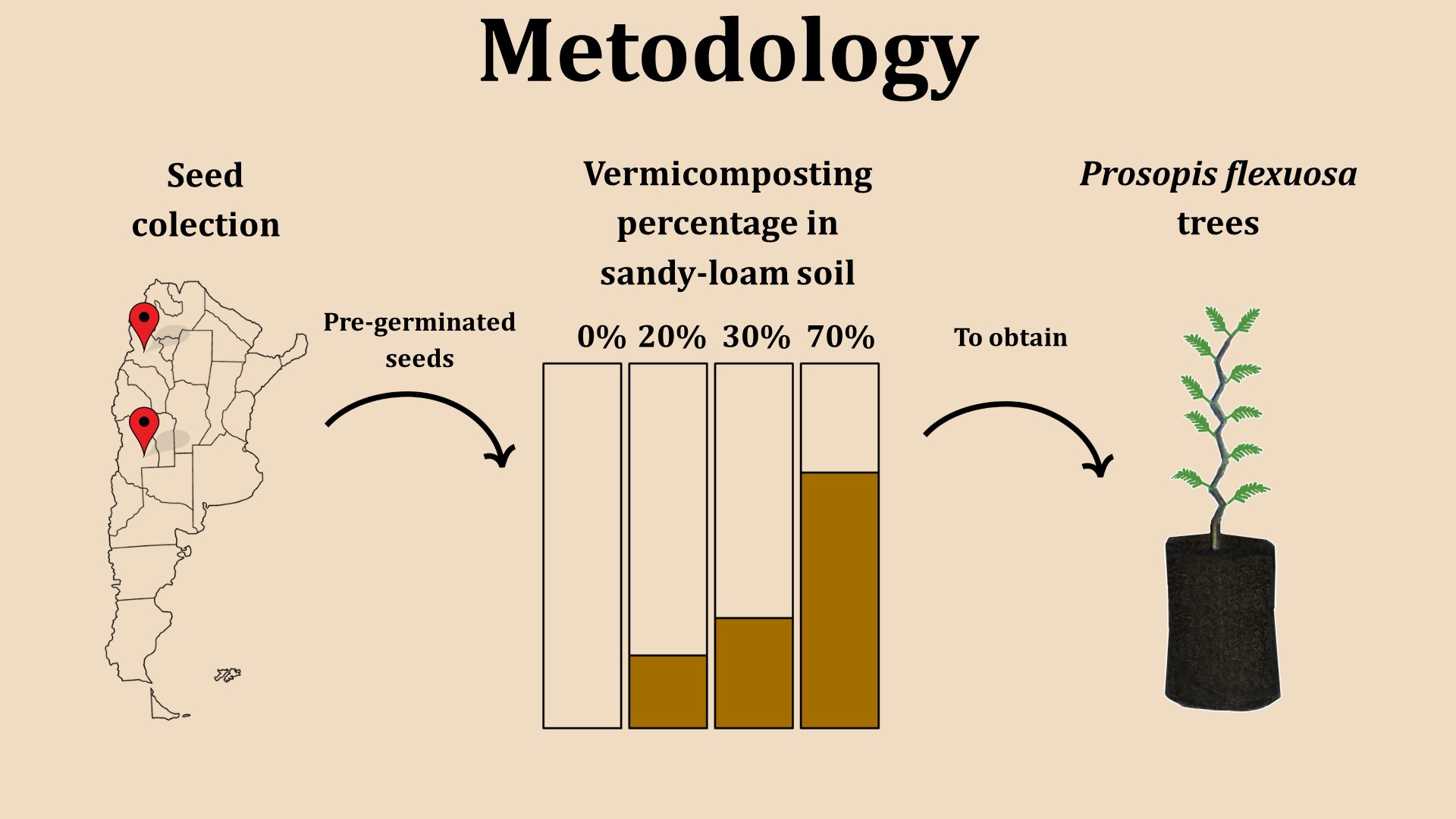
Published
How to Cite
Issue
Section
License
Copyright (c) 2018 Revista de la Facultad de Ciencias Agrarias UNCuyo

This work is licensed under a Creative Commons Attribution-NonCommercial-ShareAlike 3.0 Unported License.
Aquellos autores/as que tengan publicaciones con esta revista, aceptan las Políticas Editoriales.



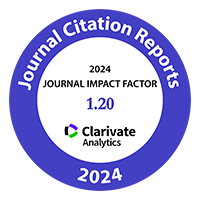




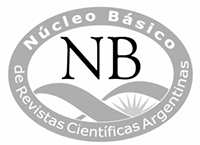


.jpg)
